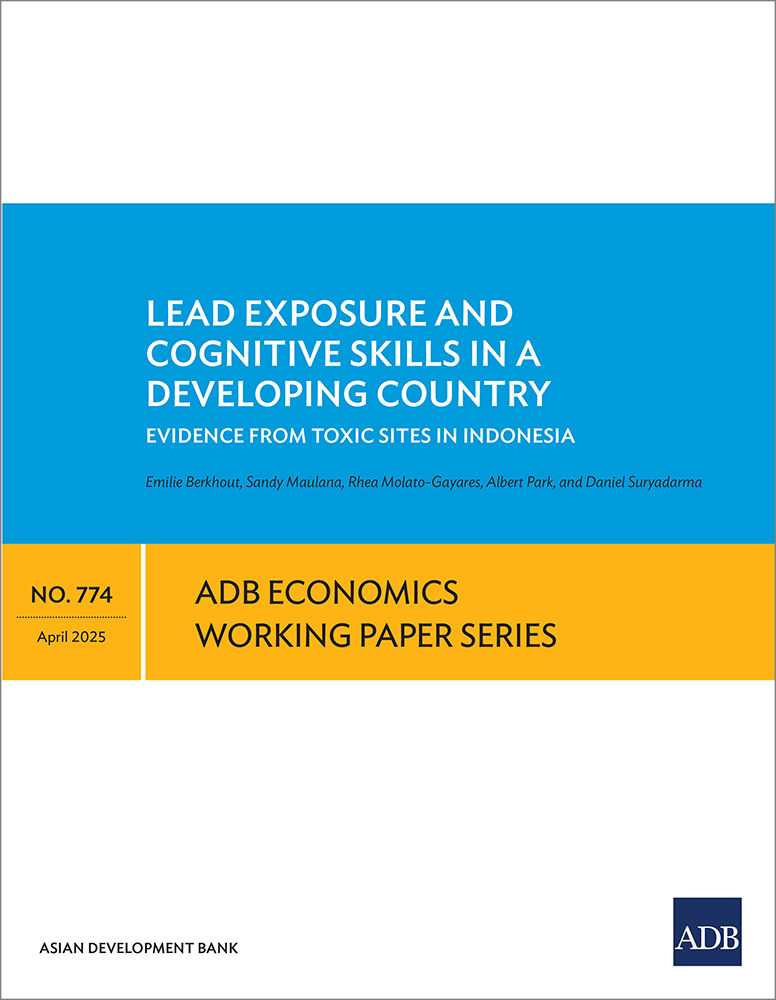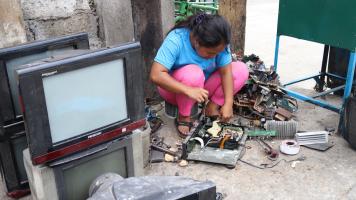Lead Exposure and Cognitive Skills in a Developing Country: Evidence from Toxic Sites in Indonesia
 Download (671.47 KB)
Download (671.47 KB)
Publication Type:
Publisher:
Asian Development Bank (ADB)
Publication:
April 2025
This paper gives causal evidence from a developing country context that children exposed to lead at a young age exhibit worse cognitive outcomes.
Around 8 million children (over 10% of all children) in Indonesia are estimated to have elevated blood lead levels. Children living near recyling sites for used lead-acid batteries across the county are observed to have a blood lead level between 4.9 microgram per deciliter (µg/dl) and 25.8 µg/dl—well above the 3.5 µg/dl threshold identified by the World Health Organization.
The paper uses data from Indonesia on lead-contaminated sites such as recycling operations for used lead-acid batteries. It finds large negative impacts on numeracy and general cognitive ability among respondents who were exposed in utero or during early childhood and lived within 6 kilometers of a site. The learning penalty in numeracy is equivalent to about 3 years of primary schooling for those who lived within 3 kilometers of a site and 1.4 years for those who lived 3–6 kilometers away. The paper highlights the importance of preventing lead exposure, especially among children.
Contents
- Introduction
- Data
- Descriptive Findings
- Empirical Strategy
- Results
- Conclusion
- Appendix Tables


